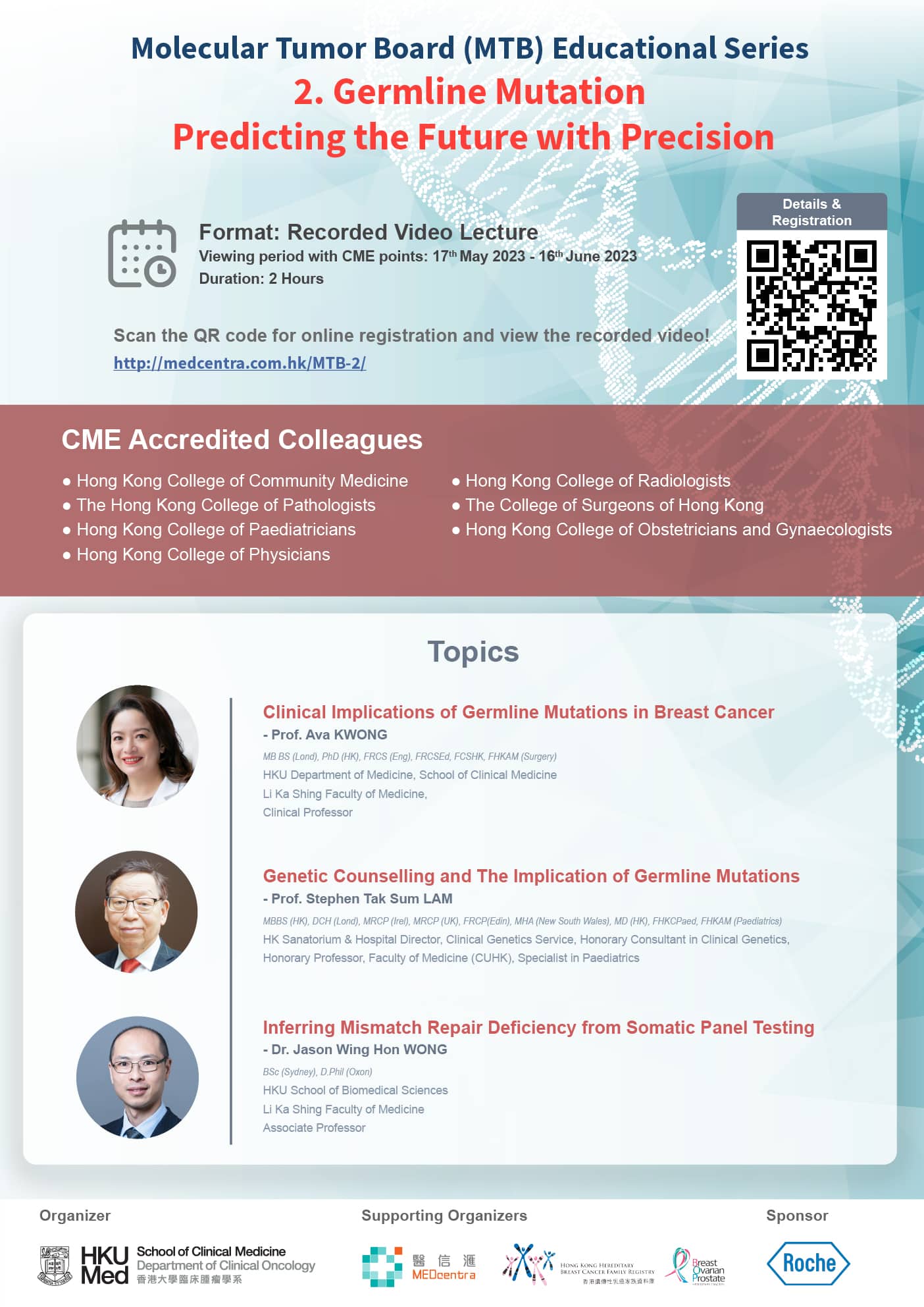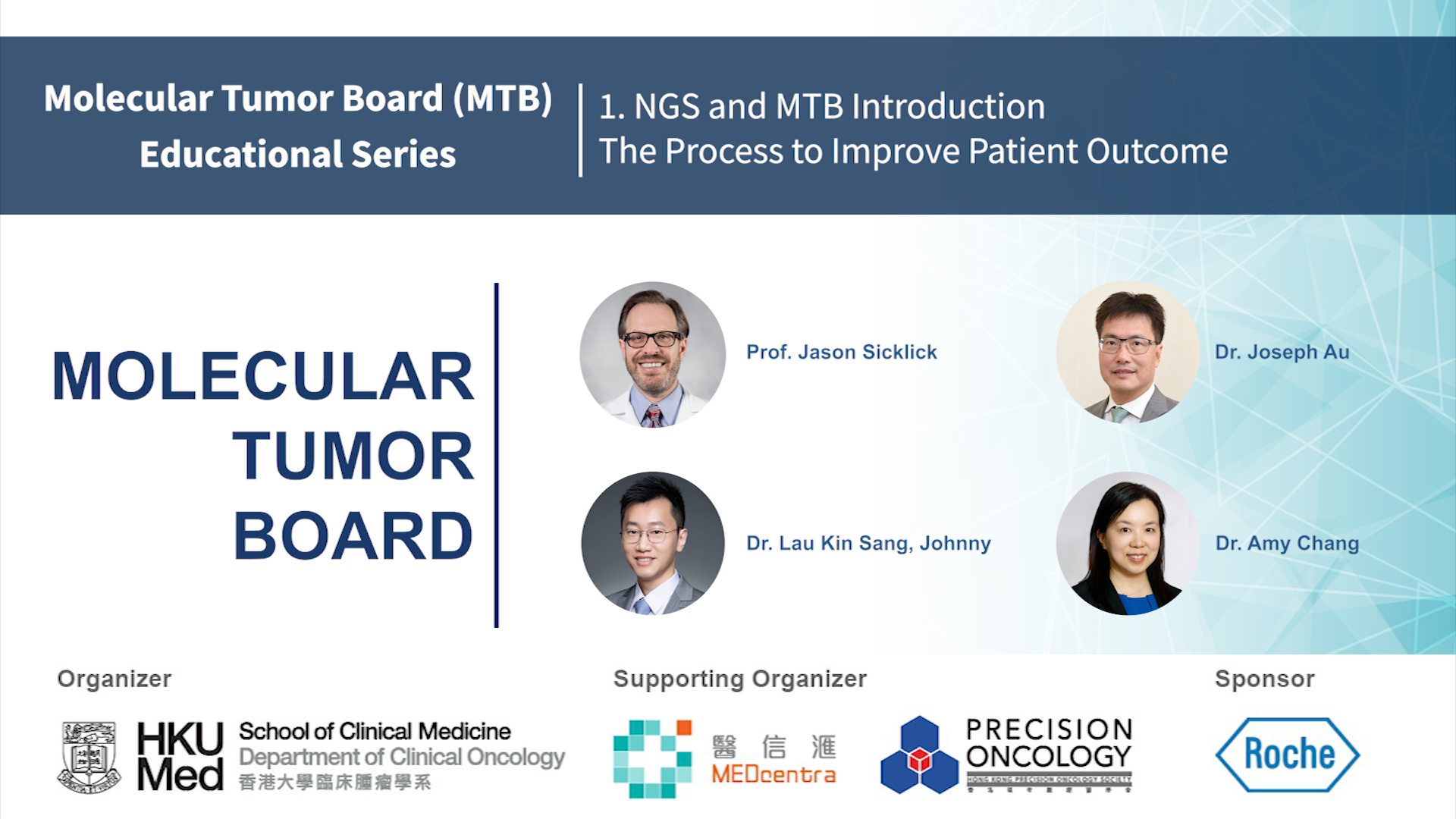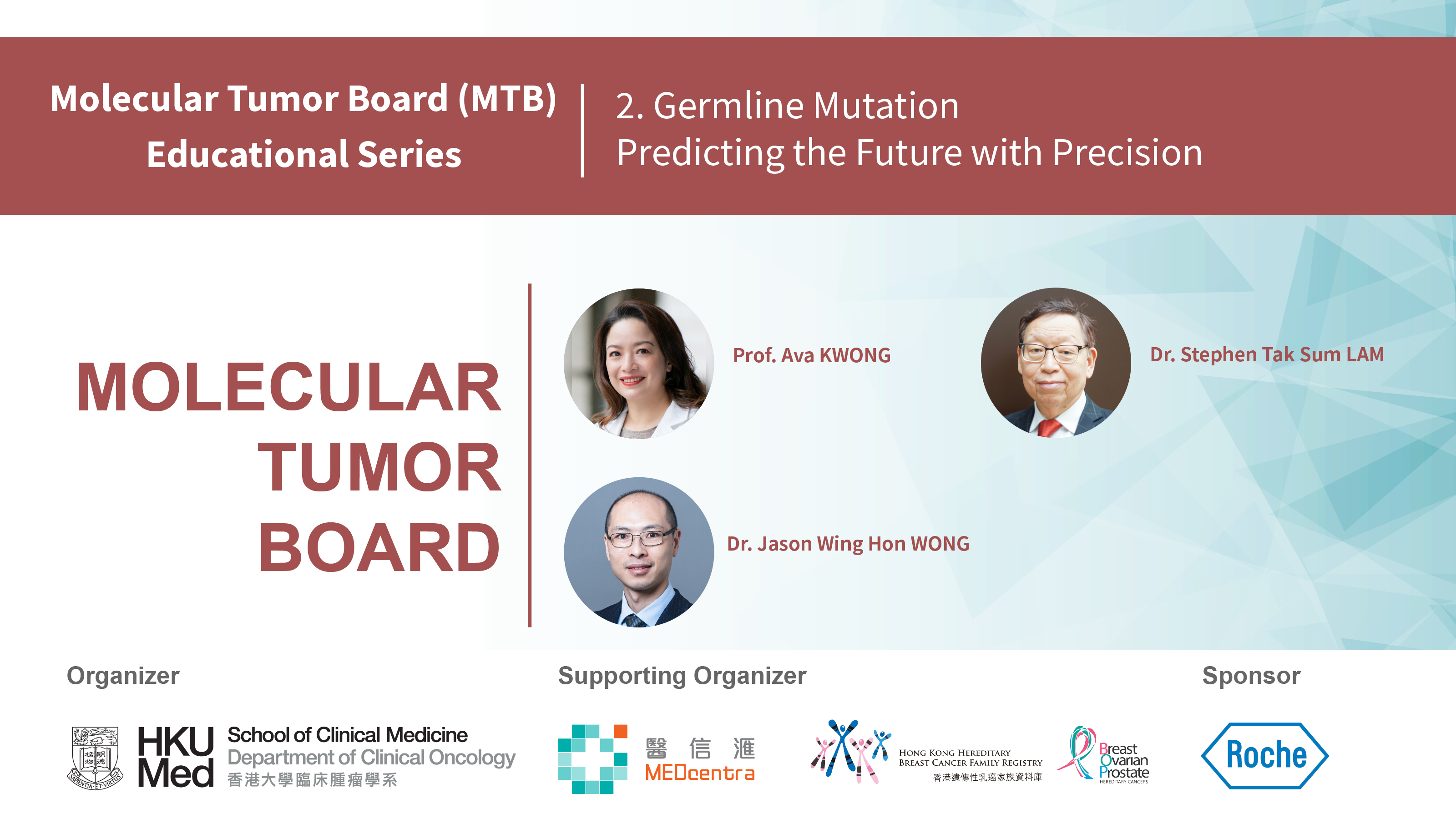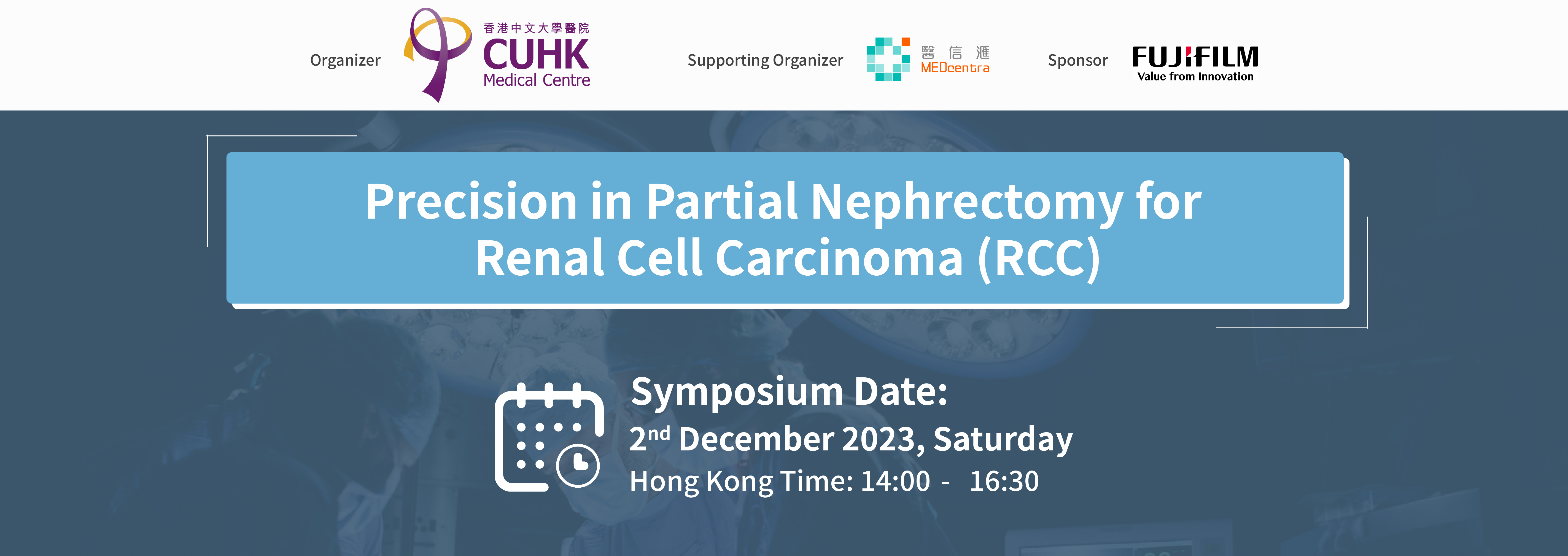CME registration deadline: 16th June, 2023
- Format: Recorded Video Lecture
- Viewing period with CME points: 17th May 2023 – 16th June 2023
- Duration: 2 Hours
CME Accredited Colleagues:
- Hong Kong College of Community Medicine
- The Hong Kong College of Pathologists
- Hong Kong College of Paediatricians
- Hong Kong College of Physicians
- Hong Kong College of Radiologists
- The College of Surgeons of Hong Kong
- Hong Kong College of Obstetricians and Gynaecologists
Organized by
- Department of Clinical Oncology,
School of Clinical Medicine,
Li Ka Shing Faculty of Medicine,
University of Hong Kong
Supported by
- MEDcentra Technology Limited
- Hong Kong Hereditary Breast Cancer Family Registry
Sponsored by
- Roche Hong Kong Limited
Topics
Clinical Implications of Germline Mutations in Breast Cancer
Genetic Counselling and The Implication of Germline Mutations
There are dozens of conditions that arise from germline mutations in various genes, which can predispose individuals to develop different cancers, and hence it is important to identify them for risk estimation and prevention of cancers. These predisposition risks can be uncovered via various forms of diagnostic or screening procedures.
The tools presently employed include next generation sequencing, whole genome sequencing or targeted gene panels analysis, single gene testing, microarray studies etc. They are performed with pre and post testing genetic counselling, whence the purpose, means, limitations and measures for disease surveillance and prevenation are detailed with the patients, and individuals’ concerns are addressed. In this presentation, examples are shown to illustrate the above issues.
Inferring Mismatch Repair Deficiency from Somatic Panel Testing
As such, identifying patients with MMR deficiency from somatic panel testing is of significant interest. In this presentation, the identification of a case of germline MMR deficiency in a patient with advanced pancreatic cancer is discussed, highlighting genomic findings from somatic panels that can be used to facilitate the diagnosis.











